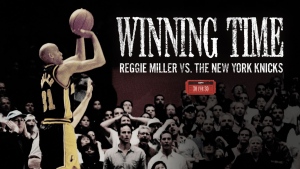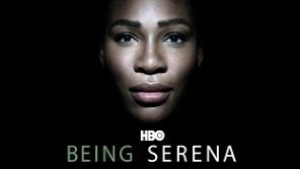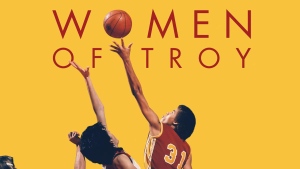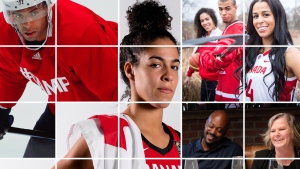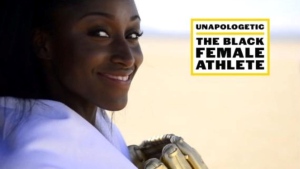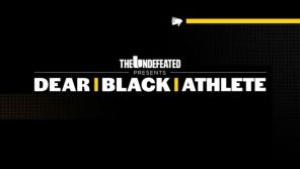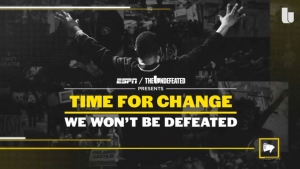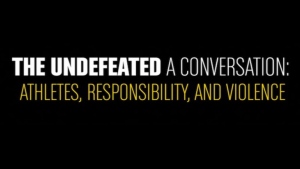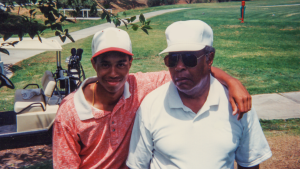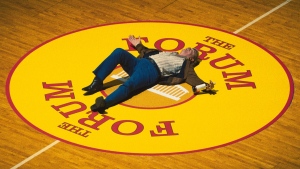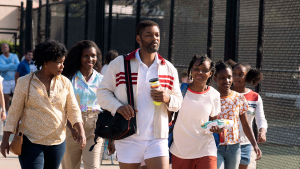Mar 1, 2022
Q&A: Ann-Renée Desbiens on winning gold and watching the women’s game grow
In the wake of capturing Olympic Gold in Beijing, Team Canada goaltender Ann-Renée Desbiens goes 1-on-1 with Kevin Yeung of The Shift. From winning gold for Canada, to her personal journey in the sport and the future of women’s hockey, Ann-Renée opens up.
For years, Shannon Szabados has been basically synonymous with Canadian goaltending. She has been a mainstay with the women’s national hockey team, backstopping them in their last three Olympics going back to 2010 and winning gold twice.
In Beijing, it was a new face in goal. Ann-Renée Desbiens was a member of the 2018 team, but made just one appearance in the Pyeongchang Olympics as the back-up to Szabados. This time, she was Canada’s starting goalie, and she stood on her head with 51 saves in the gold medal game against the United States — a Canadian record in an Olympic game (including the men’s team as well as the women’s).
“That’s what you dream when you’re a little kid. That’s what you picture doing, being in that gold medal game,” says Desbiens.
Desbiens recently joined The Shift’s Kevin Yeung to discuss taking over as Canada’s starting goalie, celebrating as a first-time gold medallist and the continuing growth of women’s hockey.
The Shift: So, a gold medal in Beijing, we should probably start there. Olympic gold medallist, and for you, for the first time. How does it feel?
Ann-Renée Desbiens: It feels pretty awesome to be honest. I’m still not sure I really realized what happened a few days ago, but I’m happy to be back home, celebrating with my family and stuff. There’s no words to explain how it feels to be an Olympic gold medallist.
For the team, you know, in that immediate aftermath, that post-game glow, how were you guys able to celebrate winning gold?
We were all excited to go back to the dressing room. There was some celebrations in there, a lot of champagne and those kinds of things happening, and then, obviously, we went back to the village eventually. A few of us had media to do, and then we just tried to stay awake as long as we could.
When we talk about Canadian goaltenders, obviously Shannon Szabados has been the primary player in that role for the last three Olympics and she’s obviously one of the greats. So for you, being the next to step into those shoes, how did you feel going into it this year?
I was super excited obviously, [following 2018] to have the opportunity to come back to represent my country at the Olympics again. Obviously, I had a bigger and more important role than last time, so as a goaltender, that’s always what you want. That’s what you dream when you’re a little kid. That’s what you picture doing, being in that gold medal game, so it was a lot of fun. Definitely enjoyed every single opportunity I had.
Like you said, you played with the team in the last Olympics as more of a back-up type role, so you have that relationship, that pre-existing relationship, with Szabados and a lot of the other veteran players on this team, like Marie Philip-Poulin. What was that relationship like going into the Olympics, getting that support from players who have done it and done the thing before?
Obviously, I just think I had a lot of support, even from my own teammates. I think a lot of people saw during games, we just had so much fun on the ice. We really played for each other. There was a lot of support, just the culture we were able to build this time around and allow every single player to be themselves, to do their best and just to really have fun and enjoy the experience.
It’s funny you mention that actually, because I feel like a lot of us here at home were able to experience the camaraderie, the vibes, of this team almost second-hand through social media — players’ TikToks and other platforms like that. Do you have any stories that you can share from your time at the Olympics, you know, being able to take it in and have that experience with this group of players?
I would say obviously, we had to spend a lot of time together because of COVID. We tried to keep our interaction mainly within our team, but our team was so close. I feel like in the past, when you would go down to dinner, you would just go down with your friends on the team, while this time around, it was like, we’ll all just go down to dinner and see what’s there. Obviously, there’s a lot of girls like Nursey [Sarah Nurse] and them that love the TikToks. Ella [Shelton] is pretty big on TikTok too, so there’s the ones that show it that way.
I think for me, the thing was just the fun we had on the ice. Cheering when there’s a shot blocked, like all those little things made this experience very special. I don’t think I’ve been a part of a team that was like that before.
So one of the things that I thought was really, really cool was the viewership stat for the gold medal game, where I believe it was more watched than any NHL game this season. Obviously, we always talk about women’s hockey, we talk about continuing to invest in women’s hockey, so I was wondering if that was something that you personally found encouraging.
Obviously, any time we have a big platform, we see people are watching. It’s getting really old to hear people go like, ‘Oh, nobody wants to watch,’ while every time there’s a big game on TV, everybody watches. So, I guess it just shows that if we can put those games on a platform more often, obviously our viewership is going to grow. Our fanbase is going to grow, but also there’s more little girls that are going to start playing and the game overall is going to get better. So, that’s a thing about being in the media and on big platforms like we did with CBC or NBC in the U.S. There’s more people watching, there’s more little girls.
Just when I came back, I was at the airport, people were like, ‘Oh, I want to be a goalie now. I want to play hockey now.’ So, the more exposure we get, the better the sport is going to be.
One of the things I read, I believe, was that after the 2018 Olympics, you faced a bit of a personal dilemma about whether or not to continue with hockey, and I believe that part of it included, you know, whether or not there were legitimate playing options that were viable as a career. Can you share with me at all the personal journey you went through with the sport of hockey as a future?
So, after 2018, it was really hard because obviously we don’t make a lot of money doing what we do. I’m somebody that always had a plan, that needs like a stable situation. So, after 2018, I was like, we don’t really have a viable league, there’s no way for me to make a living out of that, so I decided to go back to school. It’s also like, I didn’t have too much fun playing anymore. I was just kind of fed up with it. Going to the rink was very difficult, so I just made the decision to move on.
So, I went back to school at the University of Wisconsin. I made a master’s in accountancy, and while I was doing that, the [Wisconsin] Badgers asked me to be their goalie coach. I was fortunate enough to meet Kristen Campbell, who ended up being my goalie partner on the national team. I was her goalie coach at school. And then, Hockey Canada asked me to coach a few events that IIHF did, so a lot of opportunity to coach. Eventually, Hockey Canada was like, would you consider playing again? I was like, ahh, I don’t know about that, I’m pretty happy where I am. I got my degree, finished my master’s, and then I was like, well, why not? Why not give it another shot, type of thing? I’m really glad I did. I never thought I’d win a gold medal.
I guess the state of women’s hockey hasn’t changed too much just yet. It’s still a place where we don’t really have a place to play. between the Olympics. I played 30 games, so that needs to change. I’m hoping that with the momentum we just built, that there’s going to be a league created where people are going to be able to make a living. Some of the girls are going to be able to graduate college and keep playing, even if you’re not on the national team. That’s an issue we run into — if you’re not on a national team right now, it’s a little more challenging. We have the PWHPA that does showcases, but the girls still need full-time jobs, so that’s very difficult for them to keep this level of play with us, national team players. So, hats off to them. They show up to practice, they give it their best, they go back to their jobs during the day. It’s amazing what they do, but I think we really need to be able to have them with us, too.
For sure. Growing the game is always the hope, and I’m glad you were able to find your way back to the sport in a really fulfilling way. And now you’re out here setting records, so that’s great!
[laughs]
So, now that you’re back home, what was the next little while look like for you? Do we have any plans to celebrate at all, or...?
I’m more somebody that likes to do my own thing. My parents were like, ‘Do you want to do a celebration?’ I was like, ‘No, can I just come home, can we just have dinner with my siblings?’ We had a few friends come into visit the house, but pretty simple. A few of us decided, on the team, to take a little vacation, so we’re about to head off to vacation with some of my teammates to kind of enjoy our win, but also get away from society and all those things, obligations. We’re like, okay, we need to take a break from the obligations, so that’ll be super exciting, and then when I come back, do a few events here and there. Eventually, there will be celebrations set up in my hometown, but I just needed them to be pushed off a little more.

